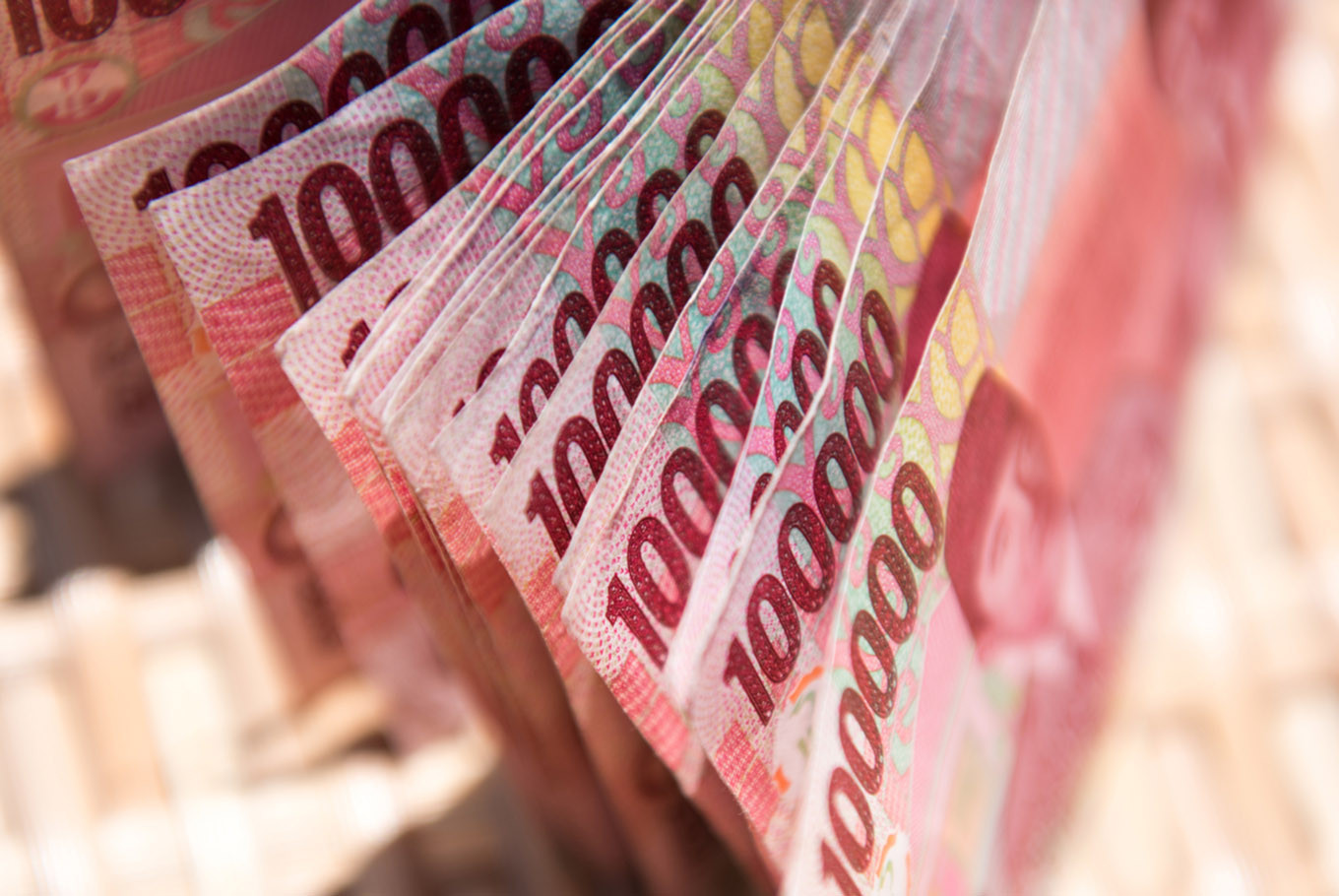Popular Reads
Top Results
Can't find what you're looking for?
View all search resultsPopular Reads
Top Results
Can't find what you're looking for?
View all search resultsIndonesia’s foreign debt rises in Q2 as govt issues global sukuk, more SBNs
Indonesia’s external debt, which includes government and private sector borrowings, was recorded at $408.6 billion in June, up 5 percent from a year earlier.
Change text size
Gift Premium Articles
to Anyone
I
ndonesia’s foreign debt rose by the end of June as the government issued global sukuk and large amounts of sovereign debt papers (SBNs) sold to foreign investors as part of the country’s efforts to fund the coronavirus pandemic response and speed up economic recovery.
Indonesia’s external debt, which includes government and private sector borrowings, was recorded at US$408.6 billion in June, up 5 percent year-on-year (yoy), Bank Indonesia (BI) data showed on Friday. That is much higher than the first-quarter growth of 0.6 percent yoy.
The government’s foreign debt rose 2.1 percent yoy to $196.5 billion in June, according to the central bank. Meanwhile, public sector debt, raised by the government and the central bank, amounted to $199.3 billion.
“The government’s higher foreign debt was driven by the issuance of global sukuk [sharia-compliant bonds] to meet the financing target,” the central bank said in the statement.
“Meanwhile, the fact that foreign [fund] inflows to the SBN market remain quite high indicates a positive perception of macroeconomic management in mitigating the COVID-19 pandemic and boosting the economic recovery.”
Indonesia has raised $2.5 billion from a three-tranche global sukuk offering to help the government fund the battle against the coronavirus pandemic in June. In total, it has raised a $9.9 billion from global bonds in the first half of the year, the Finance Ministry stated in July.
The government has earmarked Rp 695.2 trillion ($46.6 billion) to finance the country’s COVID-19 fight and support the economic recovery, which is expected to widen the budget deficit to 6.34 percent.
Meanwhile, private sector foreign debt, which includes borrowings by state-owned enterprises, grew at a faster rate than government debt, supported by rising foreign debt in nonfinancial sectors.
The private sector’s external debt grew 8.2 percent yoy to $209.3 billion in June, which was largely disbursed across four sectors accounting for 77.3 percent of overall private borrowing, namely mining, manufacturing, financial services and insurance, as well as electricity and gas procurement.
The central bank deemed the overall external debt level to be healthy, with the foreign-debt-to-GDP ratio recorded at 37.3 percent at the end of June, up from 36.6 percent the previous month. Long-term loans account for 89 percent of the current outstanding debt.
The government is unlikely to issue another global bond this year, as it aims to focus on strengthening the local debt market, the Finance Ministry’s financing and risk management director general, Luky Alfirman, said on July 24.
“We want to attract investment from domestic investors to prop up financing, because this will make [the debt market] more resilient” to global economic shocks, Luky said at the time.
Read also: No global bonds in sight as Indonesia focuses on local debt market
The government is planning to raise Rp 990 trillion from government bonds in the second half this year, as well as raise $5.5 billion from multilateral organizations.
University of Indonesia economist Faisal Basri said the government’s rising debt was not effective, as it was unable to boost economic growth significantly. “The use of debt is currently ineffective, as it continues to rise despite weakening economic growth.”
Indonesia’s economy shrank 5.32 percent in the second quarter this year, the first decline since 1999, as economic activity fell amid the coronavirus pandemic.
The government now expects the economy to shrink by 0.4 percent at worst or grow by 1 percent at best this year.










